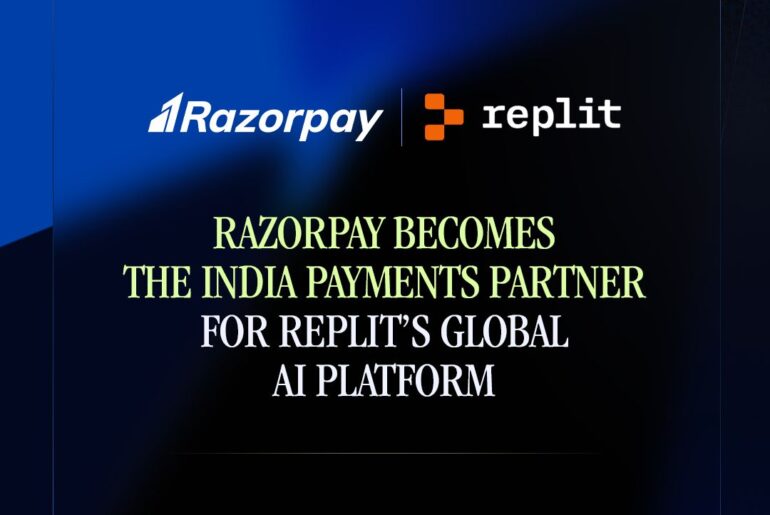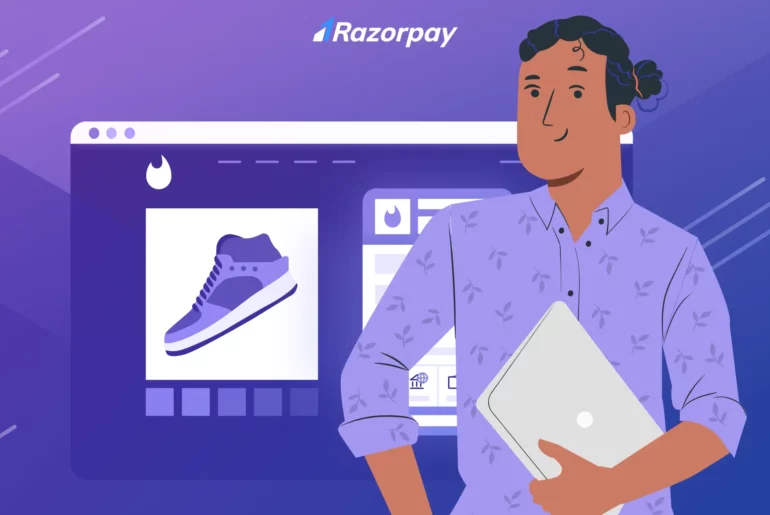Table of Contents
What is an Online Money Transfer?
An online money transfer, also known as an electronic funds transfer (EFT), is the process of electronically sending money from one bank account to another, either within the same financial institution or across different banks. This process leverages web-based and digital technologies to make transactions convenient, secure, and efficient.
Online fund transfers can be made through various methods that suit different needs and preferences. Options include mobile payment apps, online banking portals, and India’s Unified Payments Interface (UPI), allowing users to transfer money seamlessly.
Each method offers unique benefits for both domestic and international transfers, catering to different requirements for speed, cost, and ease of use.
Key Takeaways
- Online money transfer (EFT) lets you send money digitally through banking rails, so funds can reach the recipient instantly or within a few business days depending on the method you choose.
- The most used transfer options include UPI (instant mobile transfers), IMPS (24×7 instant), NEFT (batch/scheduled), RTGS (high-value), plus international transfers for cross-border needs.
- A typical transfer flow is simple: enter beneficiary details → authenticate (OTP/PIN/biometric) → receive confirmation. For bank transfers you’ll usually need account number + IFSC, while UPI can work with UPI ID or mobile number.
- Always check fees and KYC requirements before sending. Some transfers may have charges, and KYC is required to access online transfer services as per regulations referenced in the article.
- For safe transfers, use a secure internet connection, keep strong passwords, avoid phishing, enable 2FA, and review transactions regularly.
Types of Online Money Transfers
Online money transfers offer various options to meet different needs based on speed, cost, and convenience. Here’s a breakdown of the main online fund transfer types, including popular methods:
1. Bank-to-Bank Money Transfers
IMPS
Immediate Payment Service (IMPS) allows quick, 24/7 money transfers between bank accounts. Accessible via online and mobile banking, IMPS transactions incur minimal fees, set by individual banks.
NEFT
National Electronic Funds Transfer (NEFT) enables scheduled transfers that are processed in batches throughout the day. Offered by most Indian banks, NEFT is typically free of charge, making it a cost-effective choice for routine transactions.
RTGS
Real-Time Gross Settlement (RTGS) facilitates real-time transfers, ideal for high-value transactions. Recommended for amounts over ₹2 lakhs, RTGS provides immediate fund settlement between bank accounts.
2. Mobile Payment Systems
UPI
Unified Payments Interface (UPI) is India’s leading mobile payment system, enabling instant bank-to-bank transfers via a virtual payment address (VPA) or UPI ID. Developed by the National Payments Corporation of India (NPCI), UPI simplifies payments with just a smartphone, making it highly popular for everyday transactions.
3. Digital Wallet Money Transfers
Digital Wallets
Digital wallets such as Paytm, Google Pay, and Apple Pay provide a cashless payment experience. Linked to a bank account or cards, digital wallets allow users to store and transfer funds securely and quickly, often offering rewards for frequent users.
4. Cross-Border or International Transfers
International transfer services like SWIFT payments facilitate money transfers between countries, handling currency conversion for users. These services are essential for cross-border transactions and are accessible through digital platforms.
5. Peer-to-Peer (P2P) Payment Apps
P2P payment apps such as Venmo, and Cash App enable individuals to send money directly to one another, often without fees for domestic transfers. These platforms are convenient for personal transactions like splitting bills or paying friends.
6. Bill Payment Services
Many online platforms, including banking apps and third-party services, allow users to pay bills electronically. These services make it easy to pay for utilities, rent, and other regular expenses, offering scheduled payments to streamline bill management.
How Online Money Transfer Works?
1. Start the Transfer
Begin by entering the recipient’s details. For most transfers, you’ll need the recipient’s bank account number and IFSC code. However, for some methods like UPI, only the recipient’s registered mobile number or virtual payment address (VPA)/UPI ID is needed.
2. Process the Transfer
Once the transfer is initiated, the recipient’s bank processes the transaction. The money is deposited into the recipient’s account after verifying the details. Depending on the transfer method—such as IMPS, NEFT, or international transfers—this can be immediate or may take a few days.
3. Get Notified
Both you and the recipient will receive a notification confirming the completion of the transfer. This helps you track the transaction and ensures peace of mind that the funds were sent successfully.
4. Fees Apply
Some transfer methods may involve fees. These vary based on factors such as the method chosen, the amount transferred, and whether it’s a domestic or international transaction. Checking these fees beforehand can help avoid surprises.
5. Complete KYC Requirements
In compliance with the Reserve Bank of India (RBI) regulations, users are required to complete Know Your Customer (KYC) verification to access online money transfer services. This process ensures the security and authenticity of transactions.
How to Initiate Money Transfer Online: Step-by-Step Guide
Follow these steps to transfer money online securely and efficiently:
Step 1. Choose Your Transfer Method
Decide on the most suitable transfer method based on your needs. Options include online banking, mobile payment apps, UPI, digital wallets, or other services. Consider factors like speed, fees, and limits associated with each method.
Step 2. Log Into Your Account
Access your bank account, digital wallet, or payment app. Ensure you’re on a secure network and using a trusted device to protect your information.
Step 3. Enter Recipient’s Details
Provide the required details for the recipient. Depending on the method, you may need the recipient’s bank account number and IFSC code or simply their UPI ID, mobile number, or digital wallet ID.
Step 4. Specify the Transfer Amount
Enter the amount you wish to transfer. Double-check the amount to avoid any mistakes.
Step 5. Review the Transfer Details
Carefully review the recipient’s information, the amount, and any transaction fees before proceeding. Ensuring accuracy at this step can prevent delays and issues.
Step 6. Confirm and Authenticate
Confirm the transaction and complete any authentication steps. This may include entering a one-time password (OTP) sent to your registered mobile number or verifying with biometric or PIN authentication, depending on the platform.
Step 7. Receive Confirmation
Once the transaction is complete, you’ll receive a confirmation message or notification. This confirms that the transfer has been successfully processed.
Step 8. Track the Transfer (if applicable)
For some transfers, especially international ones, you can track the status of the transaction until it reaches the recipient. This can provide additional assurance, especially for high-value or cross-border payments.
How to Transfer Money from One Bank to Another Online?
Online money transfer to bank account between different banks online is quick and convenient with the following steps:
Step 1. Log Into Your Bank Account
Access your online banking account using a secure, trusted device and network. Many banks offer mobile apps and web portals for easy access.
Step 2. Navigate to the Funds Transfer Section
Once logged in, locate the “Funds Transfer” or “Transfer Money” option, typically found under the main menu.
Step 3. Choose Inter-Bank Transfer Method
Select the type of inter-bank transfer. Popular options in India include:
- NEFT (National Electronic Funds Transfer) for scheduled transfers.
- RTGS (Real-Time Gross Settlement) for high-value, same-day transfers (usually ₹2 lakhs and above).
- IMPS (Immediate Payment Service) for instant transfers available 24/7.
Step 4. Enter Recipient Details
Provide the necessary recipient information, including:
- Bank account number
- Bank IFSC code (a unique identifier for banks in India)
- Account holder’s name (some banks may require it for added verification)
Step 5. Specify the Transfer Amount and Purpose
Enter the amount you wish to transfer. Some banks also request a brief purpose or note for the transaction, which may be required for higher-value transactions.
Step 6. Review and Confirm Details
Carefully check all details, including the account number and IFSC code. Any incorrect information may lead to delays or failed transactions.
Step 7. Authenticate the Transfer
Confirm the transaction by entering any required one-time password (OTP) sent to your mobile number, or complete the transaction using biometric or PIN verification.
Step 8. Receive Confirmation
After the transfer is processed, you’ll receive a confirmation message or notification from your bank. Keep this as a reference in case of any issues.
Popular Online Money Transfer Platforms
There are several trusted platforms for transferring money online. Below are some of the most widely used and reliable services for domestic and international transfers:
Banking Apps
- SBI YONO
- HDFC NetBanking
- ICICI iMobile
These banking apps allow users to initiate online fund transfer between bank accounts, pay bills, and more, all via secure mobile or web platforms.
Digital Wallets
- PayPal
- Paytm
- Google Pay
These wallets let users send money to others quickly, whether to a bank account or another wallet user. They also offer features like bill payments, mobile recharges, and online shopping.
Cross-Border Services
- Western Union
- Wise
- Revolut
Specializing in international transfers, these services offer competitive exchange rates and the ability to send money across borders with ease.
Payment Processors
- Razorpay
Payment processors enable businesses to accept and send payments online, including money transfers, subscriptions, and other transactions.
Fees Associated with Online Money Transfers
Online money transfers can be free, low-cost, or relatively expensive depending on 5 things
- The transfer method you choose (UPI, IMPS, NEFT, RTGS, wallet transfer, international wire)
- Whether it’s domestic or international
- The amount being transferred
- The channel used (mobile app/net banking vs branch)
- Your bank’s and service provider’s fee policy
1) Domestic bank-to-bank transfer fees (India)
UPI transfers
For most people, regular bank-to-bank UPI transfers are typically free. In some cases, costs can show up indirectly (for example, if you’re using certain prepaid wallet flows or specific merchant arrangements), but for standard person-to-person bank transfers, users generally don’t pay a transaction fee.
NEFT transfers
NEFT is often the most cost-effective option for routine transfers.
- Many banks keep online NEFT charges low or zero, especially for savings accounts
- Banks can still charge for NEFT in certain scenarios (especially offline or branch-assisted transfers)
- Inward NEFT credit (receiver side) should not be charged by the destination bank
Best for: planned transfers where “instant” is not mandatory.
IMPS transfers
IMPS is designed for instant 24×7 transfers, and banks may charge a small fee.
- Fees are usually nominal and depend on the bank and channel (online vs branch)
- Some banks charge more for higher slabs or branch-based IMPS
- Receiving money via IMPS is typically free
Best for: urgent transfers where you want real-time confirmation.
RTGS transfers
RTGS is meant for high-value transfers (commonly used for ₹2 lakh and above).
- Charges can depend on whether you initiate RTGS online or at the branch
- In many cases, online RTGS is free or priced lower, while branch transactions may have a fee
- Inward RTGS credit is generally free (receiver side)
Best for: large-value transfers that need bank-grade settlement.
2) Fees for wallet-based transfers (if used)
If you transfer money using a wallet-style balance (instead of directly from a bank account), fees can vary based on
- Adding money to the wallet (some funding methods may have charges)
- Sending to another wallet user vs transferring to a bank account
- Monthly free limits (charges can apply after limits are exhausted)
Rule of thumb: wallet transfers are convenient, but always check the exact fee and limit rules before confirming.
3) Fees for international (cross-border) online money transfers
International transfers usually have more moving parts, so costs can stack up. Common fee components include
- A transfer/service fee (fixed or percentage)
- SWIFT or wire-related fees
- Intermediary bank charges (can be deducted in the route)
- Receiving bank fees (depending on the recipient’s bank)
- FX conversion cost (exchange-rate margin/markup)
Pro Tip: the cheapest-looking option may not be cheapest after FX and intermediary deductions. Always compare the “net amount received”
4) Taxes on transfer fees
If your bank or service provider charges a fee for the transfer, taxes may apply on the fee component as per applicable rules. This means your final cost can be “fee + tax on fee”.
5) How to reduce transfer costs (practical tips)
- Use online/mobile banking (often cheaper than branch transactions)
- Choose NEFT for non-urgent transfers and IMPS/UPI only when you need instant confirmation
- Avoid failed transfers by double-checking beneficiary details (wrong details can cause delays and extra charges)
- For international payments, prioritize options with clear “total cost + FX rate” visibility
Things To Consider For Online Money Transfer
Mobile Payment Application
To start a money transfer online, you must simply download a mobile payment app and create an account. Ensure that the app should be 100% secure. For example, apps like Razorpay, Google Pay, PhonePe, and Paytm have end-to-end-encrypted user data, which makes the transactions super safe.
Beneficiary Details
For a successful online payment transfer, provide the beneficiary’s information accurately. This includes the recipient’s bank account number, bank branch, IFSC code, and any other necessary details. Verifying these facts before executing the transfer can assist in avoiding problems and guarantee that the money reaches its intended destination.
Transaction Fee
You should be aware that some banks charge transaction fees for EFTs. It is the sender’s responsibility to be informed of and pay any relevant transfer fees.
Privacy & Security
Follow the bank’s guidelines for secure online banking activities. Be cautious with your passwords and bank account details to be safe from fraud and scams. Make online money transfers through trusted platforms only with regular monitoring to detect any unusual activity.
Benefits of Online Fund Transfer
Instant Availability
Online money transfers ensure the rapid availability of funds. Unlike traditional banking procedures, which often take 2-3 working days, online transfers enable instant fund access.
International and Domestic Transactions
Banks and financial institutions provide online money transfer services for both domestic and international transactions, making it convenient to send money worldwide.
Speedy Transactions
Online money transfers are one of the fastest methods available. Domestic transfers can be accomplished in a single day, while international transfers normally take a day or two, enabling quicker fund access than traditional banking channels.
Simple and Easy Process
Online money transfers are simple and user-friendly. Its simplicity and convenience make it an ideal solution for businesses and individuals seeking to transfer money securely and smoothly.
Security Tips For Safe Online Money Transfers
Use Secure Internet Connection
Avoid using public Wi-Fi for online transfers. Instead, opt for a private, secure connection to keep your data safe.
Strong, Unique Passwords
Set unique and strong passwords for your banking accounts.
Watch Out for Phishing Scams
Be wary of any unexpected emails or messages asking for your personal info. Always double-check if the site or service is legitimate before sharing any sensitive data.
Enable Two-Factor Authentication (2FA)
Turn on 2FA for an extra security boost. By doing this, even if someone gets your password, they won’t get in without the second step, which may be an email or mobile OTP code.
Review Transactions Regularly
Keep an eye on your account statements and history. If you spot anything odd, report it to your bank right away.
Explore Razorpay’s Global Payment Solutions
Conclusion
Online money transfers have revolutionized how you can transfer funds globally, providing ease, speed, and security. There are various payment methods to choose from. Depending on the nature, scale, and purpose of the transfer, you can choose the appropriate payment method.
Related Read: What is IVR Payment and How to Make IVR Payments?
Frequently Asked Questions (FAQs)
1. Is online money transfer safe and secure?
Yes, online money transfers can be safe and secure when conducted through reputable financial institutions and with adequate security measures in place. To ensure transaction security, always utilize trustworthy platforms and activate 2FA.
2. What information do I need to provide for an online money transfer?
To make an online money transfer, you generally need the recipient’s bank account information, such as name, account number, and IFSC code. For UPI transfers specifically, you need the recipient’s UPI ID and will have to enter your own UPI PIN to authenticate the transaction.
3. Are there any fees or charges for online money transfers?
Banks and financial institutions may impose fees for online money transfers, depending on the transfer type, amount, destination, and service provider. It may vary for domestic or international transactions as well.
4. How long does it take for an online money transfer to be processed?
Online money transfers usually take 1-5 business days to be processed, depending on the transfer method used. Domestic wire transfers are typically processed within one business day, however, international wire transfers might take up to five business days.
5. What are the limits for online money transfers?
The limits for online money transfers vary by the specific payment method:
-
IMPS: ₹5 lakh per transaction, ₹10 lakh daily limit
-
NEFT: No transaction limit
-
RTGS: Minimum transfer amount of ₹2 lakh
-
UPI: ₹1 lakh daily limit
6. How do I choose a reliable money transfer service?
Always opt for a reputable, secure money transfer service with clear fees. Ensure that it’s licensed in both countries. Compare exchange rates and fees to find the best deal.
7. A customer wants to transfer money to a friend instantly using their mobile phone. Which payment system is most suitable?
The most suitable payment system for instant transfers via mobile is UPI (Unified Payments Interface). It allows for quick, 24/7 transfers between bank accounts using a mobile number or UPI ID. Apps like Google Pay, PhonePe, and Paytm support UPI for seamless and immediate transactions.
8. What should I consider before transferring money online?
Before transferring money online, confirm that your internet connection is strong, verify the recipient’s details, check for fees, and use a secure connection with two-factor authentication.


